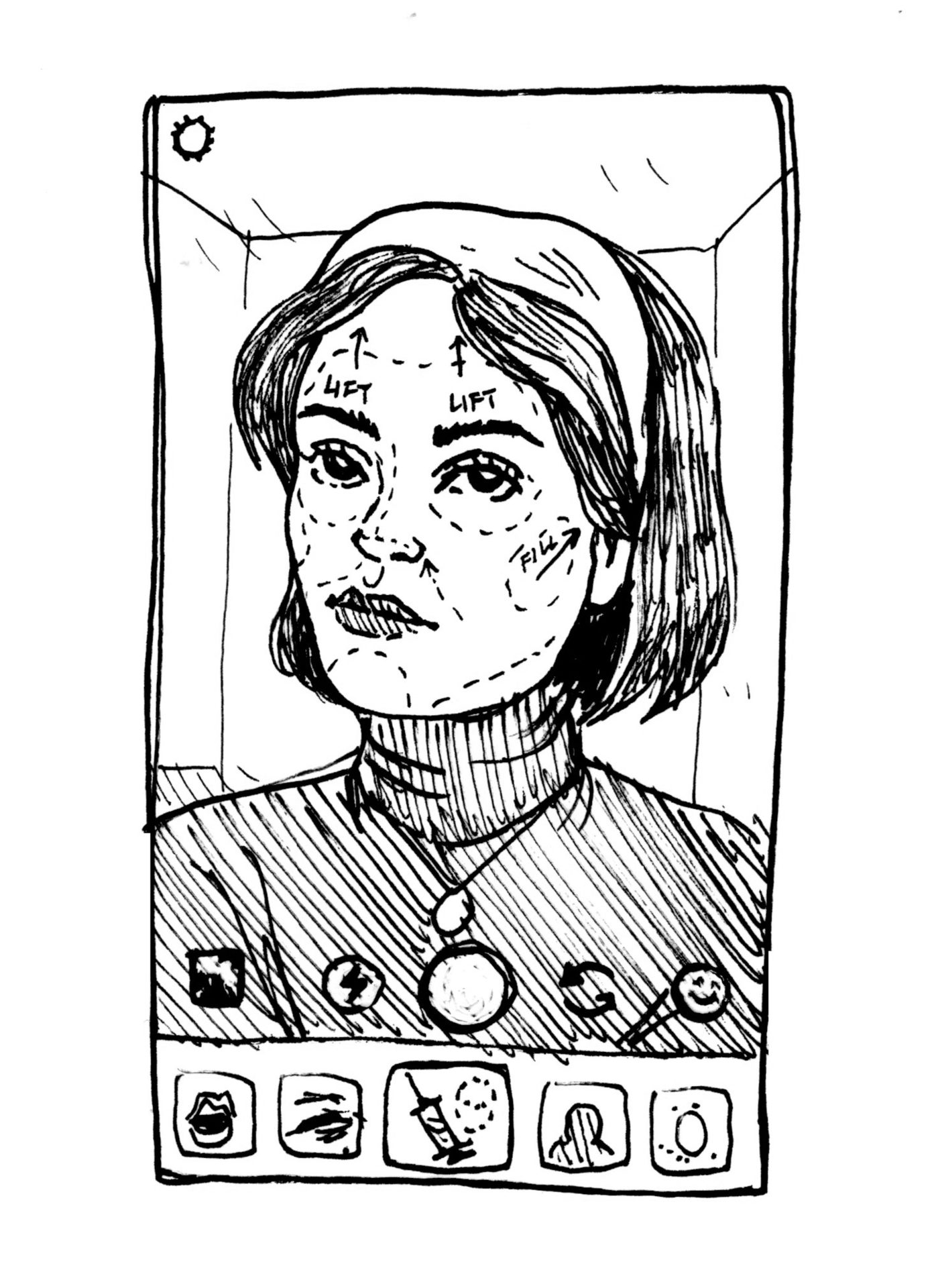
Filters are an ever-present component of our current social media culture. They are available on most photo-based social media platforms such as Instagram and Snapchat. And while some filters in these applications may be used for comedic purposes, there are a number that are used to slim noses and jawlines, emphasize cheekbones and to lighten the color of skin and eyes.
Instagram has acknowledged the toll that these appearance-altering filters can have on users’ mental health. In an effort to address this issue, Instagram announced on Oct. 18 that it would be removing all filters that mimic plastic surgery. Though this decision has been highly contested over the past few weeks, I feel it is the first step in addressing the warped perceptions that many social media users can develop about their own faces and bodies.
Like many people, I started using Instagram at a relatively young age. At that time, filters were still able to alter appearances, but not as starkly as the ones available today. Despite this fact, I can still recognize the impact that the app had on my self-esteem; viewing photos of seemingly flawless women on a daily basis for the entirety of middle school made me feel like there was something wrong with me for not looking like them. And this effect has only been amplified in the years since.
With the wide-spread use of apps like Facetune and these filters that simulate plastic surgery, we are now faced with the issue of not only low self-esteem as a result of their use, but also a divided self-perception. Many people now have two versions of themselves within their minds: a filtered, perfected social media version and the real, imperfect version. Naturally, a person will begin to prefer the altered, smoothed version of themselves and eventually come to despise their actual appearance.
As a person strives to look more and more like their filtered appearance, it takes a great toll on their mental health, as they have created an impossible expectation for themselves that they will never be able to live up to. With social media being introduced younger and younger, we could have whole generations with warped perceptions and low self-esteem because of the unrealistic expectations presented on these apps.
Another issue lies in the fact that our society as a whole bases a person’s (most of the time a woman’s) self-worth on how well they fit into that society’s beauty standards. Often times the amount of respect a woman receives can be directly tied to how attractive she appears to be or how well she fits into Euro-centric beauty standards. Many young people also get a lot of external and temporary validation from how attractive they are perceived to be online. Society shows us that you are rewarded if you conform to its standards, so why not try?
These reasons outline why I support the ban on plastic surgery filters. While their removal does not solve every issue related to perception and social media, it is a necessary first step to address the toxicity that comes from photo-based apps like Instagram. Instagram has become a place of constant comparison, where people will often look at other people’s lives, faces and bodies and wonder why they cannot live like or look like those people. If this ban gets us slightly closer to people presenting their real selves on social media, I think it is worthwhile.
Subscribe to the Mossy Log Newsletter
Stay up to date with the goings-on at Lewis & Clark! Get the top stories or your favorite section delivered to your inbox whenever we release a new issue.

Leave a Reply